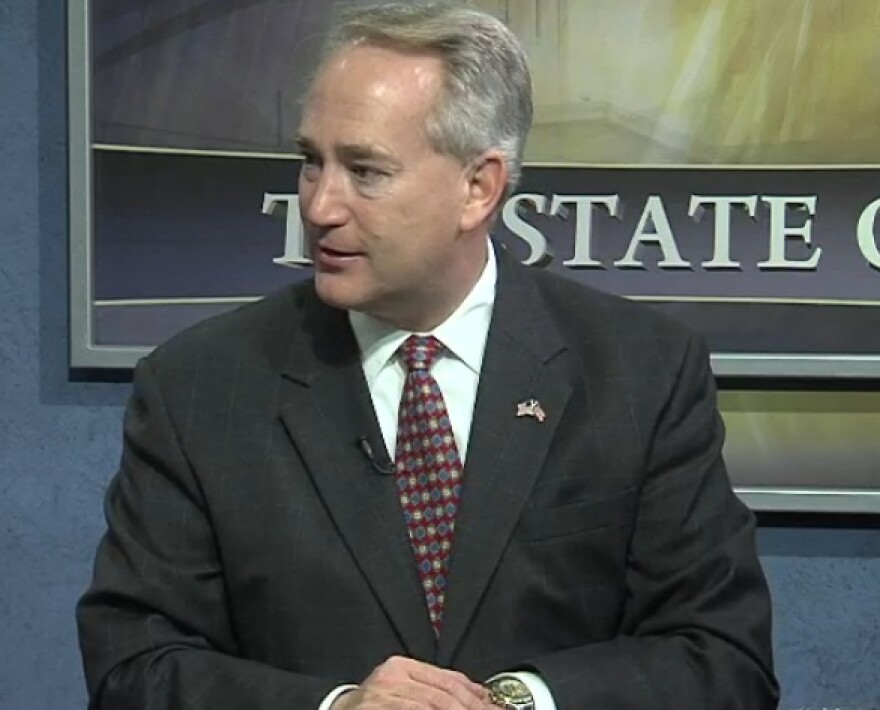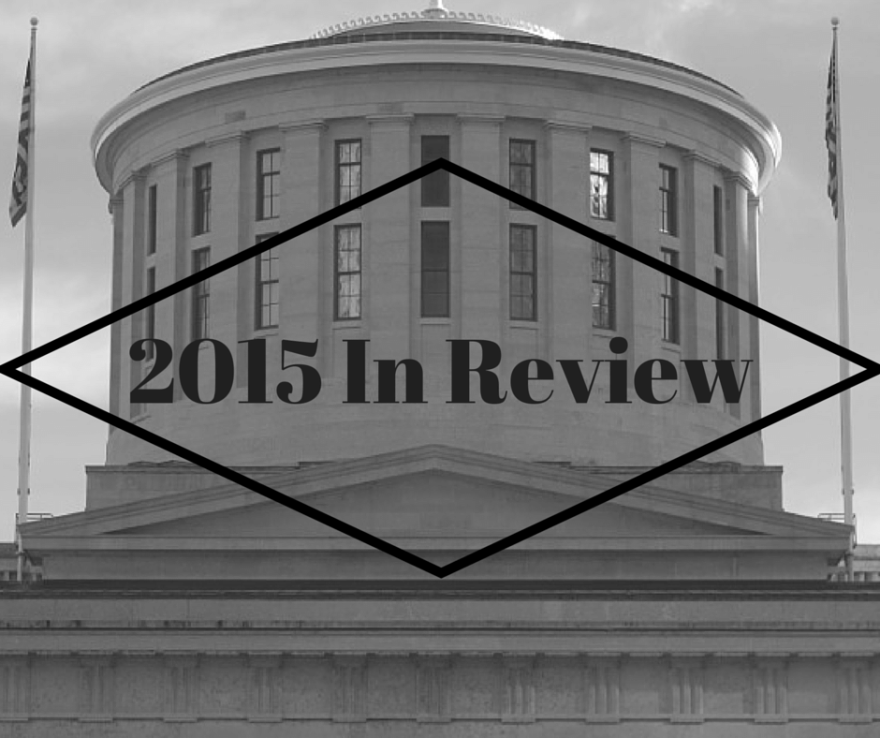2015 brought some controversial issues before lawmakers in the Ohio Senate, and some of them are likely to circle back around in the year ahead. The top leaders of the Senate debate how these decisions have effected Ohioans.
Senate President Keith Faber and Minority Leader Joe Schiavoni are not new at this, they’ve been in leadership for three years now, and are used to sparring over issues related to the budget and tax policy.
The Republican from Celina and Democrat of Boardman near Youngstown disagree strongly over tax cuts, which Faber says help create jobs but Schiavoni says hurt the middle class and local goverments. Faber says he’s skeptical.
“The argument that locals are going to levies because they didn’t get enough money from the state, just not true. We actually have fewer levies.”
But Schiavoni countered, “If you talk to people on the ground, they’ll tell you the opposite. I was just in Ashtabula. They had to put a levy on the ballot for police and fire. They’re not doing that for any other reason than they must do it because of the shortfall.”

Faber responded, “Joe, the numbers tell the tale. There are fewer local levies on the ballot, both for K-12 and for local governments now than there has been in a long time.”
There are still more than a thousand or so local government levies on the ballot each year, but the number of school levies on the ballot has declined after a recent high of 236 in November 2010, this past November there were around 110.
One tax that has generated a lot of debate is the severance tax on oil and gas drillers, an increase proposed by Gov. John Kasich was stripped from the budget and was turned over to a panel of lawmakers for study. That panel didn’t issue a recommendation on a tax rate, but said only that the issue deserves to be studied further. Faber said with prices low, now isn’t the time to raise the tax. Schiavoni said if it’s increased, revenues should go back to the communities being affected by fracking.
There have been several bills related to abortion in the House, but none have made it to the Senate, and that includes the ban on abortion after the first detectable fetal heartbeat. Faber, who has strongly supported anti-abortion legislation, said the so-called Heartbeat Bill isn’t going anywhere for now.
“This bill has significant constitutional concerns, so we’ll see what the Supreme Court does on the Heartbeat Bill,” said Faber. “If they pass it, then we can give it consideration. But until that time, I am not for just advancing someone’s limited political agenda that has consequences to undo many of the other strong pro-life things we’ve done as a legislature.”
Faber has also expressed concerns about so-called Right to Work legislation, though he supported the public sector collective bargaining reform law Senate Bill 5, which was repealed by voters in 2011. Schiavoni agrees, saying a House bill banning private employers from requiring workers to join unions is a bad idea overall.

“I think that’s not something we want to get into. We don’t want to get into this whole Senate Bill 5 thing again,” Schiavoni said. “But I think that if it’s going to pass the House and come over to the Senate, there will be more noise.”
Faber added, “We'll see what happens in the House with it. In the past, I’ve said anything that will end up with ‘Right to Work’ will end up on the ballot. I still have that view.”
But one issue Schiavoni does hope comes up is a proposal on medical marijuana.
“If you look at the polls, 90% of Ohioans think that medicinal marijuana is something that they want us to explore. We need to do that next year or else we’re going to end up with another constitutional provision put on the ballot,” Schiavoni said. “So I hope that we work on that quickly, thoroughly, using the medical community as the hub.”
The Senate leaders also have other projects they hope to advance. Faber has been pushing colleges and universities to drop their overall costs by at least 5%. And Schiavoni hopes to put a $1 billion, 10 year bond issue for sewer upgrades and other water quality improvements onto the ballot in 2016.




